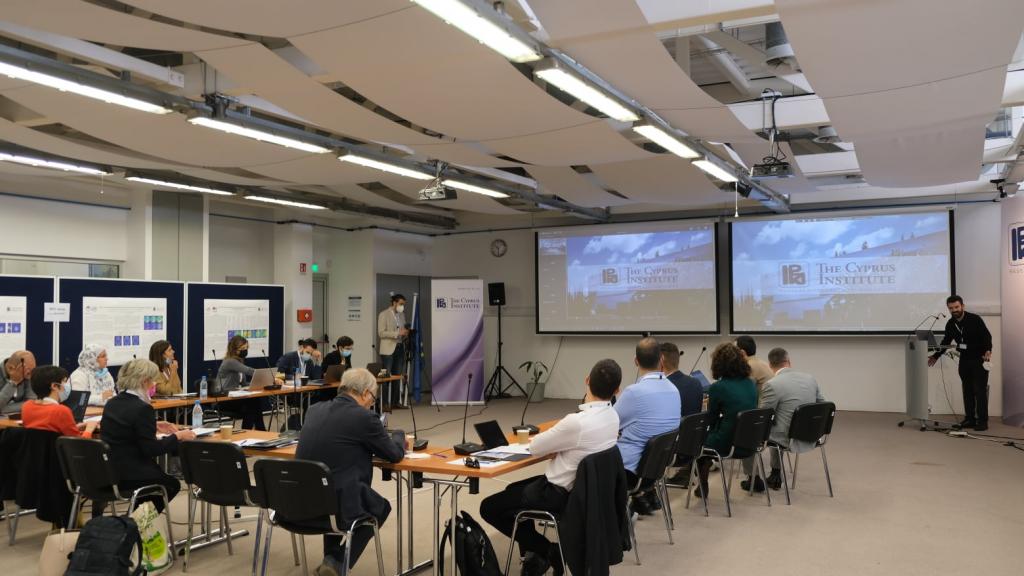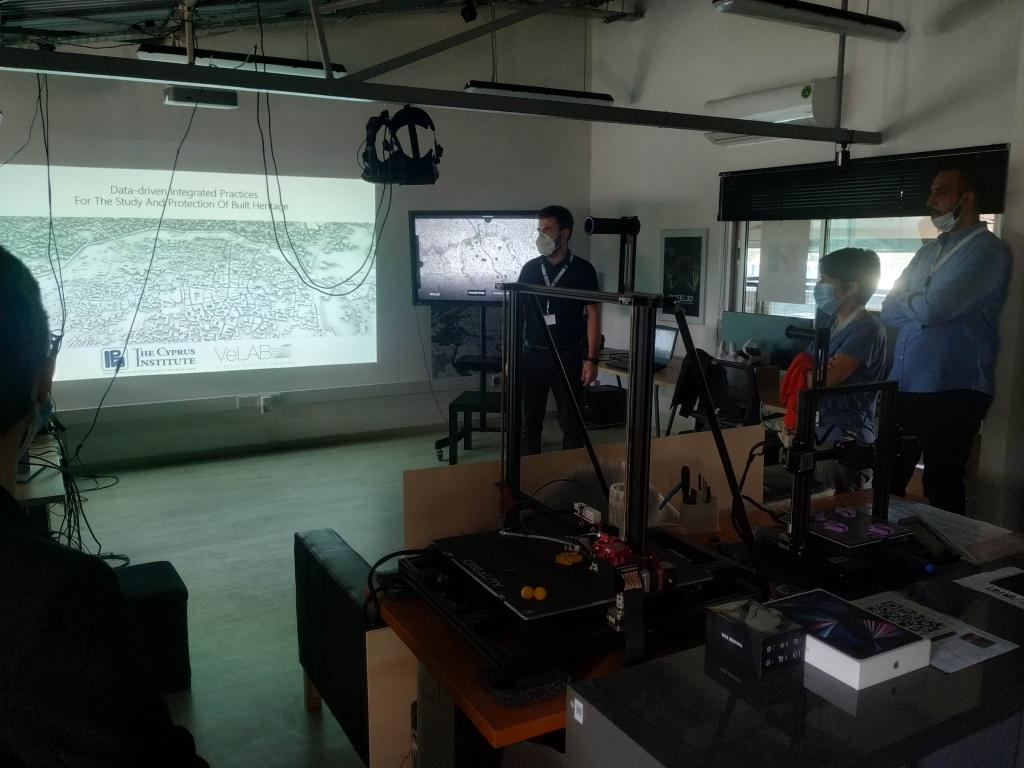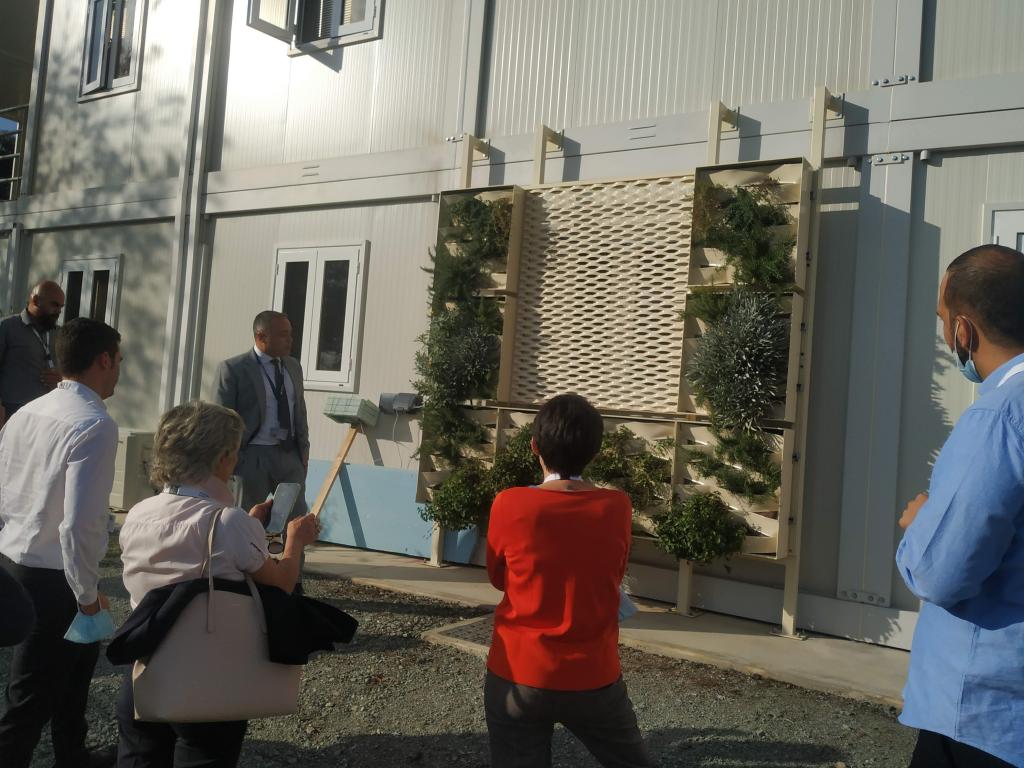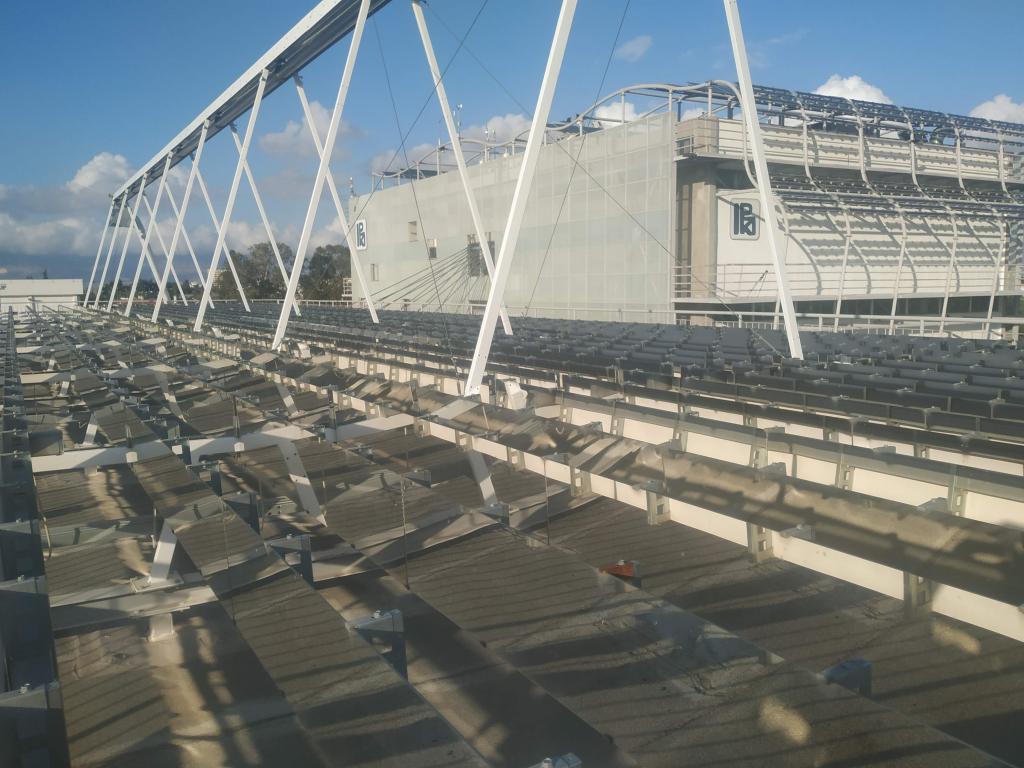Plans for energy renovation of 9 heritage buildings are discussed at the BEEP partners' meeting
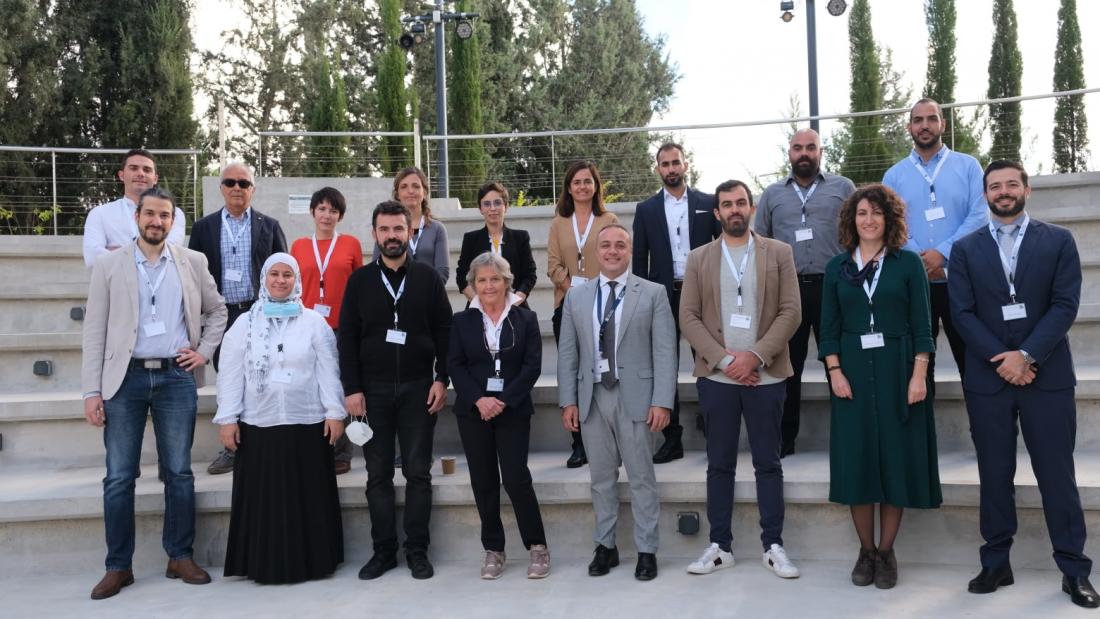
On the 3rd and 4th of November, the Cyprus Institute hosted the 5th BEEP project partners' meeting which, fortunately, could be held in person on this occasion. The meeting was attended by the 8 entities participating in the project from 7 Mediterranean countries: Italy, Spain, Cyprus, Palestine, Lebanon, Jordan, and Egypt.
The BEEP project partners were welcomed by Salvatore Carlucci, Head of the Sustainable Built Environment of the Cyprus Institute, who also conducted a guided tour of the Institute's headquarters in the afternoon.
During the meeting the measures for the energy renovation of the 9 pilot buildings that the BEEP project is analysing were discussed. Most of the partners agreed on the selection of the following measures:
- As passive measures, the most used by the partners in the retrofitting scenarios have been the incorporation of thermal insulation from the inside of the building and the incorporation of shading systems.
- As active measures, the most popular are the renovation of lighting with LED lamps, the replacement of old heating and air-conditioning equipment with more efficient ones and the incorporation of building management systems.
- Regarding the implementation of renewable energy sources, many of the partners seem to have opted for the installation of photovoltaic panels on the roof.
About the BEEP project:
BEEP project aims at strengthening the use of Building Information Modelling (BIM) to enhance energy efficiency in buildings. The testing of this emerging technology on built heritage will be performed to demonstrate its scalability to the entire building stock. The project will provide public administrations with a powerful method for the energy rehabilitation of public buildings to be supported with private funds through the Energy Performance Contracting (*). The project main outcome will be an innovative methodology based on the integration of emerging technologies tested on 9 heritage public buildings located in Italy, Spain, Cyprus, Jordan, Palestine, Lebanon, and Egypt.
(*) Energy performance contracting (EPC) is a mechanism for organising the energy efficiency financing. The EPC involves an Energy Service Company (ESCO) which provides various services, such as finances and guaranteed energy savings. The remuneration of the ESCO depends on the achievement of the guaranteed savings. The ESCO stays involved in the measurement and verification process for the energy savings in the repayment period. ESCO and energy performance contracting are mostly found in the public sector and to a lesser extent in the industrial and commercial building sectors (Hilke and Ryan, 2012). Source: European Comission
Follow BEEP project: Web, Facebook, Twitter
